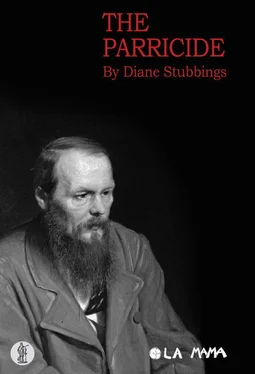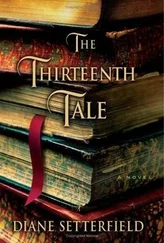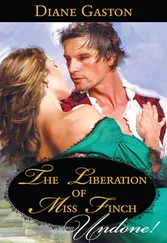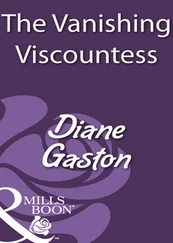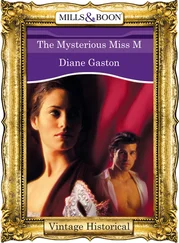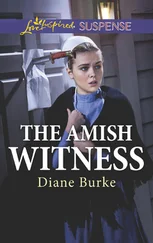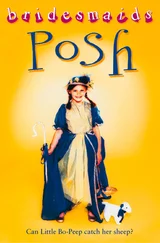Footsteps on the stairs.
ELENA enters. She opens the shutters on the window, letting in a cold, blue daylight.
MITYA is no longer in the room.
ELENA kisses FEDYA.
FEDYA: Not now.
ELENA: You’re working, yes. We could hear you all the way down the stairs.
FEDYA: We?
ELENA: [ going to the door, calling through ] It’s fine. He’ll see us.
KARAKOZOV enters. He fidgets. He seems nervous.
ELENA: [ to FEDYA] You’ve been killing people again, your landlady tells us.
FEDYA: Who’s this?
ELENA: [ to KARAKOZOV] Fedya likes to live out his imaginings. Don’t you, Fedya? Play-act the deed before he commits it to paper.
FEDYA: I’m a curiosity for strangers, am I?
ELENA: What’s it about this time, Fedya?
Another romantic triangle by the sound of it. A young man obsessed with a beautiful woman. And the old man who comes between them.
A stale sort of idea, don’t you think?
FEDYA: What do you want?
ELENA: Has the young man killed the old one? Is that how it works?
FEDYA: [ referring to KARAKOZOV] Your new pet, is he?
ELENA: It’s not me who keeps the pets.
A beat.
ELENA: This is Dmitri Karakozov, Fedya.
He’s a student. / Or was.
FEDYA: You were the bombs. Last night.
KARAK: Not me.
FEDYA: Your brothers then.
ELENA: He’s barely been here two days. He knows nothing of the bombings.
The university in Kazan expelled him. For not paying his fees.
KARAK: It’s an honour—
FEDYA: I’ve no money for poor students.
ELENA: He’s not come here asking for money.
FEDYA: What were you studying?
KARAK: Science.
FEDYA: Science? You believe then that a man is built from the scraps of the earth—?
KARAK: No—
FEDYA: A raking together of the right measure of dirt and grease and steel—and there he is—
KARAK: No—
FEDYA: A mere engine, driven by nothing other than the cold spark of reason—
ELENA: That a man has the right to be free—that is what he believes.
FEDYA: Is there anyone who believes otherwise?
ELENA: Our Tsar—
FEDYA: Our Tsar has freed the serfs—
ELENA: To do what? To be what?
FEDYA: Perhaps they threw him out of the university because he’s lacks the capacity to speak for himself.
ELENA: He dreads your answer.
FEDYA: My answer to what?
KARAK: I have a letter…
FEDYA: Of concern to me because…?
ELENA: You have access to publishers.
FEDYA: As do you.
ELENA: I haven’t your connections.
FEDYA holds out his hand for the letter.
He reads it.
KARAK: On behalf of the students of Kazan.
ELENA: On behalf of all students.
FEDYA: [ handing it back to ELENA] Plaster it on the streets with the rest of their nonsense.
ELENA: It deserves better. You know it—
FEDYA: There is a man who waits across the alley—who opens every piece of mail before it comes through my door—who watches for me to take one wrong step—
ELENA: And informs on you so often they’re still sifting through reports from years ago.
[ To KARAKOZOV] Tell him. Go on. What you told me.
KARAK: When they knew I was coming to Petersburg…
There are few writers who the students respect as much as you. Because of how much you’ve sacrificed already.
FEDYA: I’m done with revolution. I’ve served my time for it.
ELENA: Yet nothing has changed.
This is the future / of Russia, Fedya.
FEDYA: You think the beggar in the street cares about the future of Russia?
ELENA: If it means more bread in his mouth—
FEDYA: Because then he’ll be happy?
ELENA: Because then he’ll no longer be so distracted by hunger that he can’t find the path to his own happiness.
FEDYA: In the paradise you’d build for him?
KARAK: That we will give him the means to build for himself.
A long beat.
FEDYA puts out his hand for the letter.
The actor playing KARAKOZOV transitions into ALYOSHA . As he does so—
[KARAKOZOV]: It’s only the ordinary who must live in obedience. This is what Dostoyevsky taught me. That the extraordinary have the right—the duty—to step over the mundane obstacles of ordinary law, of entitlement… And each man’s life is the proving ground. Whether he is an ordinary man—or one among the extraordinary.
The actor adds the final elements of ALYOSHA ’s costume; becomes fully ALYOSHA.
Night. FEDYA ’s flat. FEDYA in the shadows. He is writing (in the notebook). MITYA and ALYOSHA are with him.
FEDYA: You’ll begin not at a university, but in a monastery…?
ALYOSHA: I believe in God?
FEDYA: You believe in truth.
MITYA: Truth is whatever we can get away with.
A woman’s flesh in your hand.
FEDYA: You devote yourself to the elder there. At the monastery. Watch for him to show you the way forward. The moment when it comes.
ALYOSHA: To do what? Go where?
FEDYA: Bringing light to darkness. Your only goal. But taking a path so far from the ordinary…
Is it even possible?
ALYOSHA: What?
FEDYA: To write you. To write a thoroughly good man. A thoroughly good man whose end won’t be completely misunderstood—
ALYOSHA: Why? What’s to be my end?
FEDYA: Truth so far from where you ever hoped to find it.
MITYA: They told me Lazarus walking from his tomb was truth. I didn’t believe it.
FEDYA: Witness it yourself. Then you’ll believe.
ALYOSHA: Are you certain, brother?
Mustn’t we already believe—if we’re to see the miracle when it comes?
The noise of the roulette wheel spinning to a halt.
In a candle-lit room, we see FEDYA . He has lost on the last spin. He searches through his pockets for more money to place. He places his last coins. The wheel spins again. He loses.
As he plays, we see the actor transitioning from MITYA to KOLYA.
[KOLYA]: No-one but me at the train station, the morning he arrived back from the east.
He’d been forgotten. He understood that. Knew his moment had passed. That there were other writers—lesser writers—who had slipped all too readily into his place.
Ten years he was in that prison—and every day of it showed on his face, like a shadow of hell.
He is now fully KOLYA.
SCENE SIX
KOLYA ’s office. FEDYA waits while KOLYA reads a letter. With an old rag, FEDYA dabs at a cut on his head.
KOLYA: What happened to your head?
FEDYA: Somebody hit me. With a lump of wood.
KOLYA: Who have you upset this time?
FEDYA: It was a drunk. By Kokushkin Bridge. Lashing out at whoever passed.
KOLYA: Been to one of your dens, have you?
FEDYA: It was the only way to decide whether to give it to you or tear it up.
KOLYA: I take it you lost then.
[ Finishes reading the letter ] It’s your hand-writing, Fedya.
You said it was the students’ letter.
FEDYA: It needed revising.
KOLYA: Yours is the only name on it.
A beat.
KOLYA: You’re making good progress on the novel then? If you’ve time to be writing letters to the authorities.
FEDYA: Will you print it?
KOLYA: Why not send it to them quietly?
FEDYA: I don’t want it to disappear.
KOLYA: Bombs in the middle of the city, Fedya. This is something new. Unpredictable.
Читать дальше
